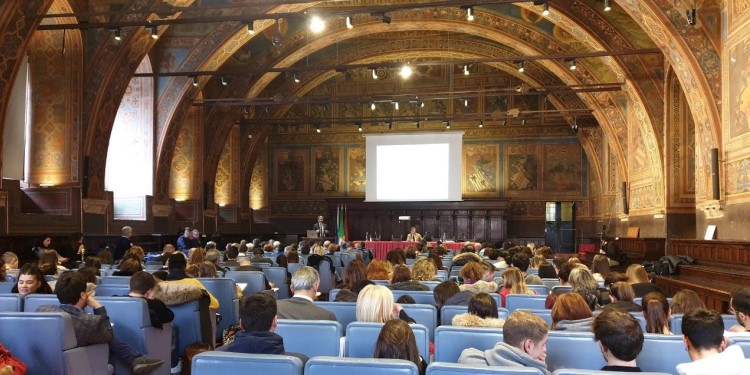Military and Civil Nurses: Synergies for a Dual Systemic Use of the Profession
On 6 December 2019, the Italian military association ASSODIPRO, in collaboration with the National Federation of Professional Nursing Orders (FNOPI), organised a conference in Perugia on “Military and Civil Nurses: Synergies for a Dual Systemic Use of the Profession”. The aim of the conference, which was chaired by Chief Marshal Antonio Gentile, was to emphasize the need to establish operational synergies between nurses from the military and the civilian sectors in order to guarantee some particular standards, such as organisational cooperation, sharing of good care practices, continuity of care and the rationalisation of resources.
The pooling of skills is necessary to build a new vision of a National Multi-Dimensional Approach in order to face emergencies that can threaten the health of citizens. The dual systemic use of the country’s healthcare capacities allows the country to give optimal responses in cases of disasters, emergencies and large-scale crises. In this sense, the nurse is a key figure.
The conference was attended by over 200 participants, including students, nurses (civilian and military) and doctors. Unexpectedly, students paid large attention to the “military career” aspect. They asked many questions concerning recruitment methods and ways to become a military nurse.
After some short welcoming speeches by the organisers and local authorities, Giuseppe Pesciaioli, President of ASSODIPRO, expressed a comprehensive positive understanding: “Today we step in a context of symbiosis and collective participation: we will achieve an efficient and effective National Multi-Dimensional Approach”.
The President of EUROMIL, Emmanuel Jacob, delivered a speech on European experiences related to the aforementioned topic. In preparation of the conference, EUROMIL had questioned its member associations on the education and training of military nurses and paramedics and received input from eight European countries, namely Belgium, Denmark, Germany, Greece, Ireland, Poland, Slovakia and Spain. Overall, even if in some cases the education is pursued in a civilian facility while in others it is conducted in a military environment, military and civilian nurses have the same education and training. Moreover, military qualifications are fully recognised in the civilian sector and vice versa.
However, Mr. Jacob pointed out that, although care practices and treatment procedures in the military and civilian sectors are equal – or at least comparable – and have the same standards, specific policies and measures between the military and civilian sectors can be different for each of the aforementioned countries.
Furthermore, Mr. Jacob focused on military nurses who are firstly considered as “military” and who may consequently be subjected to specific restrictions or regulations. For instance, in many European countries, “military personnel – and therefore also military nurses – do not enjoy basic and fundamental human rights such as any other employee”. Non-comparable salaries, careers and pension systems as well as the denial (in almost half of European countries) of the right to freedom of association or trade union rights for military personnel are just a few of the main problems.
In his final remarks, Mr. Jacob concluded with a call for “more coordination” – mentioning the case of the STANAG on “allied joint doctrine for medical support” published by NATO, on which only a few NATO Member Countries made their own reservations. At the European level as well, EUROMIL calls on coordination and cooperation among EU Member States, not only on structures, procedures and equipment but also on training, education, working conditions and social care.

